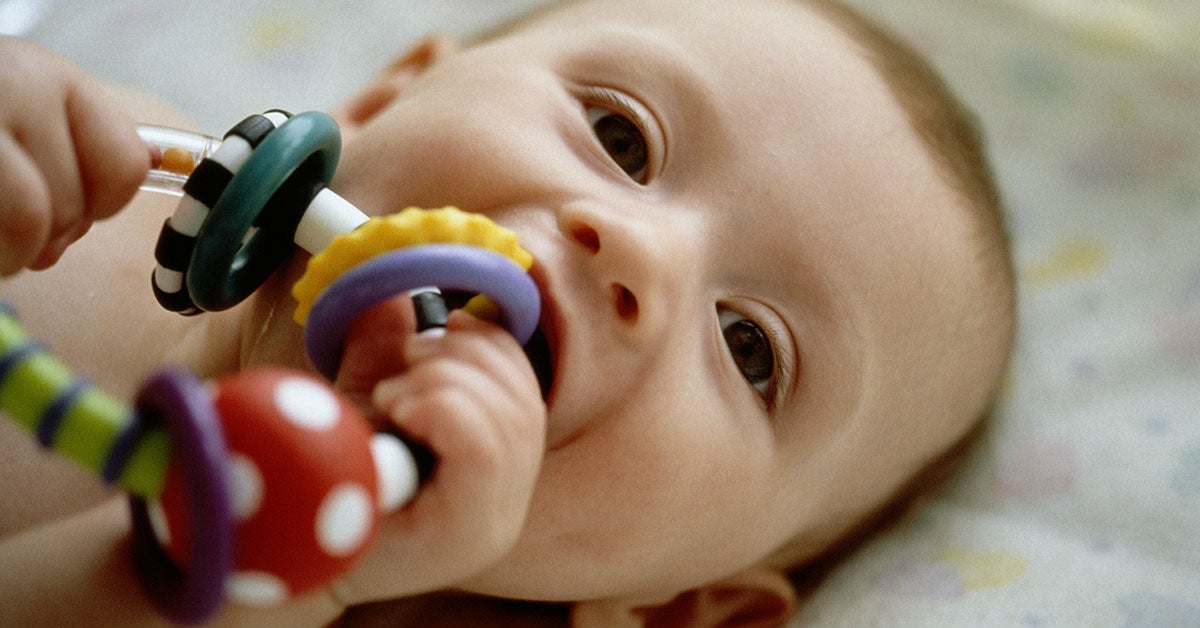Table of Contents
What is Teething?
Teething is a process in which a baby’s teeth break through or erupt from their gums. Another word for teething is odontiasis.
When do Babies Start Teething?
Most babies start their teething between 4 to 7 months of age but some may start it later too. Child specialist in Lahore believes that parents shouldn’t worry about when their baby’s tooth will erupt or if their baby is late or early.
Some babies might have a tooth on the day they were born, it is a rare condition that is found in one per 2000 to 3000 births. This tooth is called a ‘natal tooth’ ; it is often loose and malformed. It is in most cases removed before the newborn is discharged from the hospital to eliminate any risks of aspiration in the lungs.
What are the Signs and Symptoms of Teething?
The onset of teething symptoms usually starts several days before the eruption of the tooth. Below mentioned is the list of some common symptoms and signs of teething:
- swelling in the gums
- crankiness and fussiness
- tenderness in the gums
- drool coming out of their mouth
- cough
- changes in eating pattern and sleeping pattern
- pulling their ear
- chewing on everything that comes into their sight
- a slight raise in their body temperature (usually less than 101 F)

Teething is an extremely difficult phase for both babies and parents. Some uncommon and severe signs of teething are diarrhoea, vomiting, rashes, high-grade fever and congestion. If your baby is suffering from any of these you should consult their paediatrician immediately and get them treated.
You should also consult a doctor if your baby’s gums are bleeding or you see any pus in their gums.
Is There a Pattern or Order of Tooth Eruption?
Some dentists believe that teeth come in a different pattern for every baby and this pattern of eruption is usually based on the family history.
But the most common pattern that is noticed is: first come in the central incisors between 6 to 12 months of age. Then come the lateral incisors between 9 to 16 months of age. Next canine teeth are erupted between 16 to 23 months of age. Then come the first molars between 13 to 19 months of age and second molars between 20 to 24 months of age.
What Can I Do to Help My Teething Baby?
Every baby is different so what worked to ease teething for your first child may not work for your second baby. Don’t give up and keep on trying to soothe them because it’s a difficult phase for both of you. Here we summarising a list of things you can do to help your teething baby:
- Give your baby something cold like a frozen pacifier or refrigerated teething toy or ring, if your baby is over 6 to 9 months then you can offer them chilled water in a sippy cup too.
- Offer teething crackers to your baby.
- You can massage your baby’s gums by gently rubbing your clean finger over them or maybe give them your finger to gnaw on for a bit.
What are the Treatments that one Should Avoid?
Following are some don’ts that you need to follow if your baby is teething:
- Never put anything in the mouth of your baby that isn’t specifically designed and approved for soothing the teething pain.
- Most paediatricians don’t approve of teething necklaces but Child specialist in Islamabad advises if you choose to make your baby wear one then you should put it either on their wrist or ankle and not around their neck and always keep a close eye on your baby when they’re wearing it.
